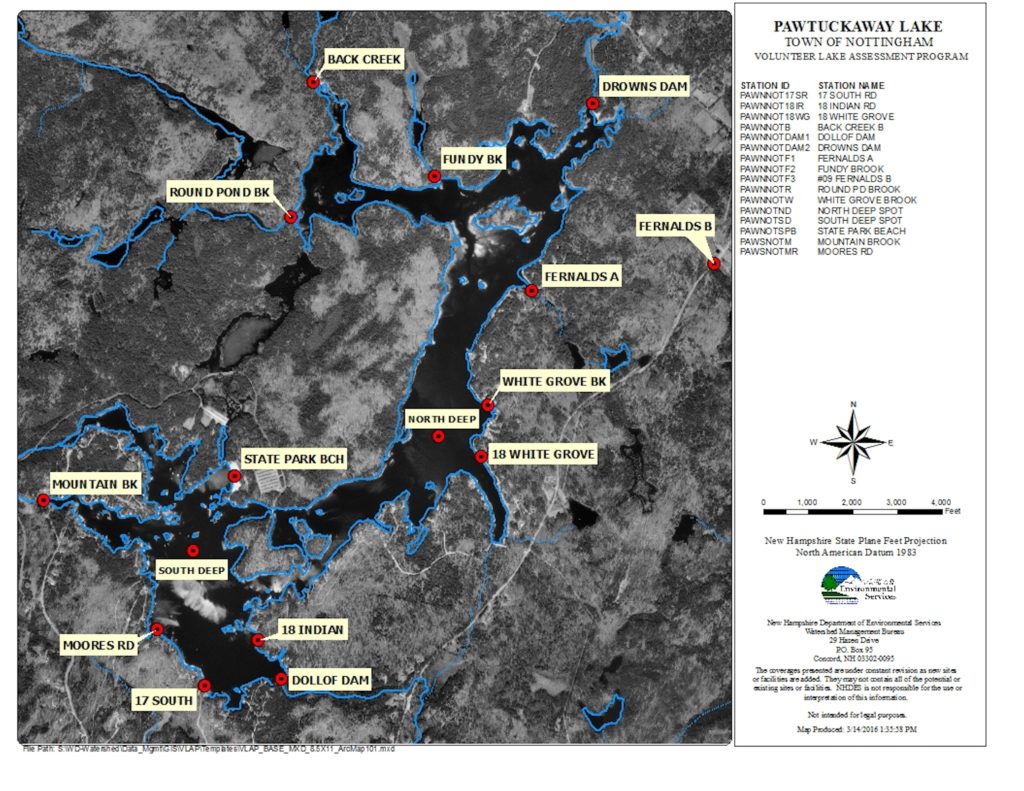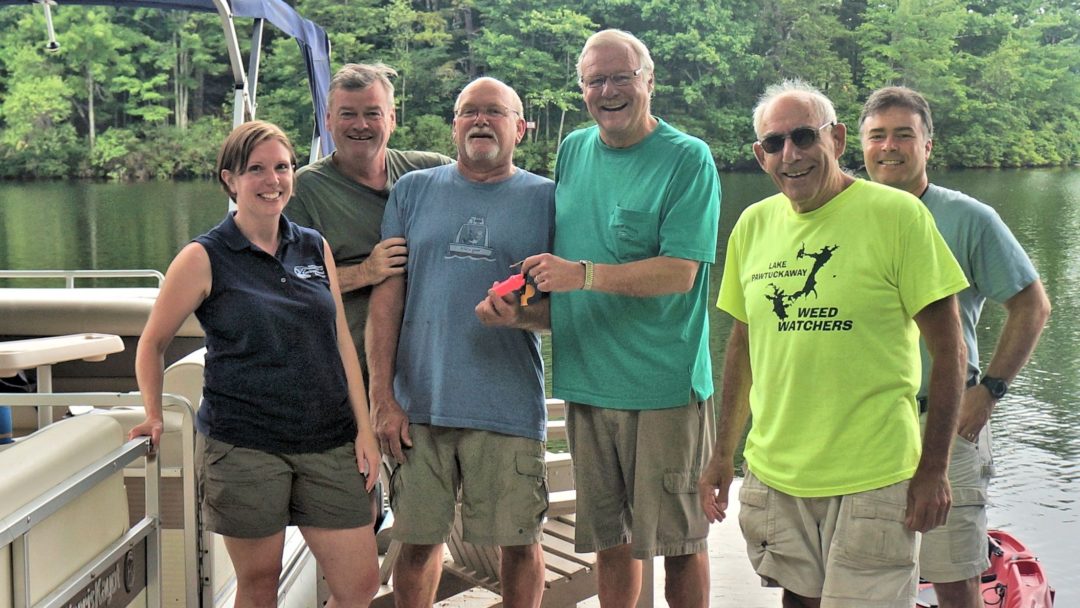Our Water Testing Committee was first organized by the PLIA in the late 1980’s. Since then, the Association has been testing the quality of lake water in order to monitor its clarity and health. Supported through membership fees and donations, the Water Testing Committee operates five months a year. With test results going back over many years, we can spot trends and seek solutions to ongoing problems.
The process of testing Pawtuckaway’s water requires that the Water Testing Committee regularly gather samples from the seven major tributaries that feed the lake. In addition, two deep water readings are taken, one from the northern part of the lake and the other from the southern part of the lake, where clarity is also assessed.
The map below shows all the sites where water samples are collected around the lake: This program is conducted under the guidance of the NH Department of Environmental Services (NHDES), through its Volunteer Lake Assessment Program (VLAP). Every month from late spring, through the summer, and into the fall, samples are taken and sent to a NH DES laboratory. There tests are run, analysis is performed, and results are compiled. These tests measure levels of phosphorus, chlorophyll, oxygen, and other biological indicators of lake health. Regular reports are issued by the VLAP Program and can be accessed here and here.
This program is conducted under the guidance of the NH Department of Environmental Services (NHDES), through its Volunteer Lake Assessment Program (VLAP). Every month from late spring, through the summer, and into the fall, samples are taken and sent to a NH DES laboratory. There tests are run, analysis is performed, and results are compiled. These tests measure levels of phosphorus, chlorophyll, oxygen, and other biological indicators of lake health. Regular reports are issued by the VLAP Program and can be accessed here and here.
This information helps not only NH DES but also the PLIA to initiate plans and programs aimed at improving and maintaining our clean lake water. Excessive phosphorus in a freshwater system increases nuisance levels of aquatic plant and algal growth, and its proliferation in our lake water over the years has been a growing cause for concern.
Using data derived from its active water testing program, in 1993 the PLIA was able to obtain a State-funded diagnostic study of the ecological health of our lake water. The State also funded a program to make improvements at several off-lake sites where significant amounts of phosphorus were leaching and draining into streams that feed the lake. A follow-up grant in 2006 further enhanced water quality. To read the report generated from this study, go to: geosyntec-final
Pawtuckaway Lake is a fragile resource, and those of us who live and vacation on the lake, and who rejoice in its natural beauty, recognize a duty to step up as its caretakers. You can be a part of this effort by volunteering for Water Testing with the PLIA. Please send an email to: Info@PawtuckawayLake.com with your contact information along with how you would like to help. You can also send any questions you may have.
